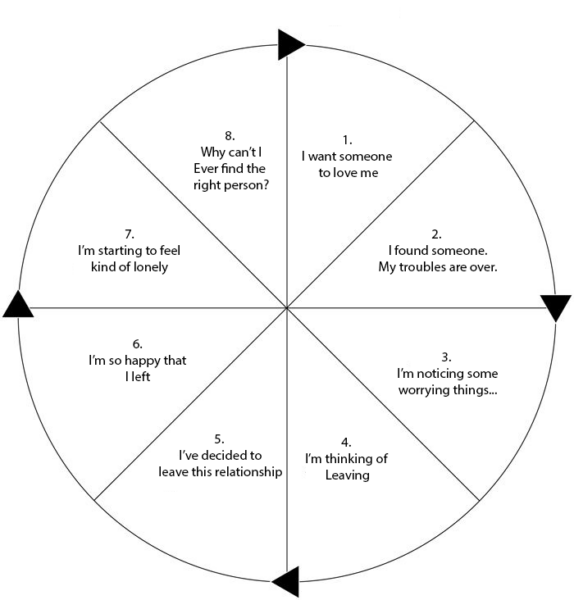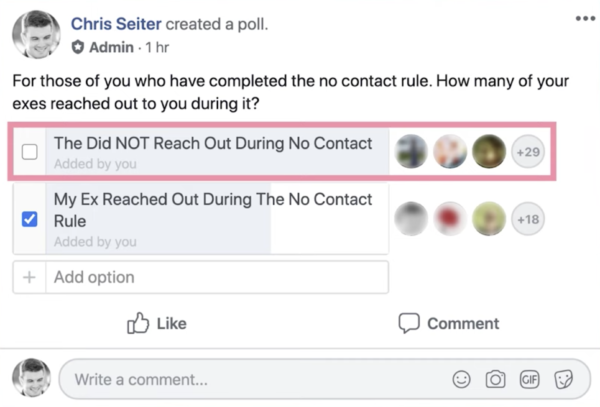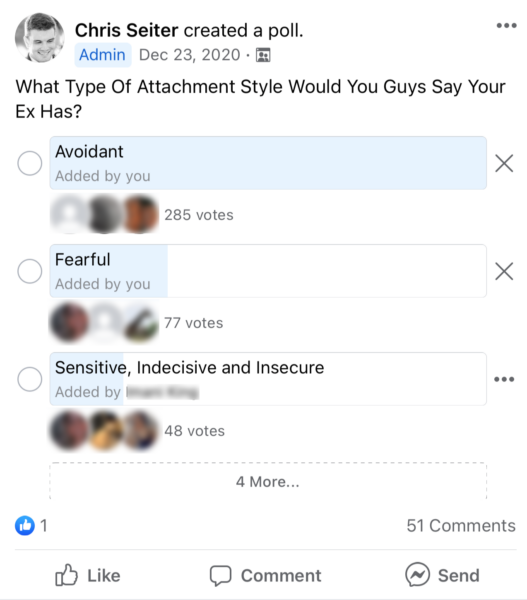Today I’d like to have an in-depth discussion on avoidants specifically as it relates to them falling in love and what that looks/feels like.
Now, most of the time when one of my peers covers this topic they focus on the major signs avoidants love you and what that looks like. In fact, I think I’ve even written an article covering that as well but when you talk about what love feels like from an avoidant perspective the discussion becomes really complicated.
Take for example this little nugget of knowledge.
An avoidant will typically have two big waves of “love” that they’ll feel for someone. We can divide these waves up into two phases,
- Love at the beginning of a relationship
- Love after a relationship
And that’s exactly how we’re going to divide this article up.
Let’s begin.
Wave #1: Love At The Beginning Of A Relationship
In researching this article I do what I always do, I peruse the forums and often I’ll find myself having two reactions.
- Oh, this is a good point, I’ll have to dig in and mention this in my discussion
- *eye roll* This person has no idea what they are talking about
For some odd reason I had a lot of eye roll moments in researching this but that’s because a lot of people have a basic misunderstanding of how avoidants operate. For example, the narrative often goes like this:
- Steer clear of avoidants
- Pursue those who demonstrate they love you
- Avoidants rarely change
This is the problem with how most people view avoidants. They think they are incapable of love but that’s simply not true. In fact, one of the worst raps that avoidants get is that most people think they are incapable of love but the truth is that many avoidants want love very badly.
They’ve just never been shown how to “love” in a healthy way before.
And that really transitions perfectly to my next point.
One of the biggest misunderstandings that avoidants have about love is they are convinced it occurs during the honeymoon period.
In other words, they grow addicted to the feeling of the honeymoon period and when it ends they convince themselves that they’ve fallen out of love.
And though I’ve not been able to find exact reputable research to back up what I’m about to say, I do have a theory for why they do this.
The First Time Is The Best Time Theory
Life is set up in a way so that the first time we experience something it usually hits the hardest both positively or negatively. The example I always use is pointing to your favorite movie and asking you what it felt like the first time you saw it. What about the fifth time?
It can still be amazing but since you know everything that’s going to happen it loses a lot of its emotional punch.
This is a rule of life.
The first time will always hit the hardest.
Everyone who has lived long enough inherently understands this, avoidants included. So, this can partially explain why avoidants are drawn to the honeymoon period. They know it’s arguably the best they’ll feel in the entire relationship BUT I’m insinuating something far more devious.
If an avoidant subconsciously knows that a honeymoon period is going to end that actually plays right into their hands.
Remember, avoidants are always caught in this paradox of wanting someone to love them but never wanting to let anyone close enough for that to happen.
So, it’s entirely plausible that an avoidant can use the honeymoon period as an internal clock for the end of a relationship. Kind of like a doomsday clock. Once the honeymoon period ends, they know the relationship should too. I’m not saying that all avoidants operate in this way.

What Are Your Chances of Getting Your Ex Boyfriend Back?
Take the quizOne look at my avoidant death wheel shows that some avoidants stay in relationships far longer than a honeymoon period exists,
But I would by lying if I didn’t mention that I have noticed avoidant exes in our program that do this.
They essentially use the honeymoon period as a crutch.
Hell, I’ve even been guilty of this.
By the way, if you didn’t know, I’m classified as a dismissive avoidant,
My first breakup scarred me so mentally that I was single for five years. That was a very conscious choice because I didn’t want to grow close to anyone but that doesn’t mean that I didn’t play the field in those five years. That doesn’t mean that I didn’t go on dates.
In fact, one of my favorite things to do was to go on dates, exist in the light of the honeymoon period and then cut the other person off after I felt the honeymoon period was ending for my own protection. I’m hardly the first person to do this.
So, that’s the first wave of love an avoidant will feel.
And for the most part that’s where most of my peers stop but I’ve actually found that there’s a second wave of love avoidants will feel.
Wave #2: Love After A Relationship
So, the entire thought process behind this exists because of the phantom ex syndrome,
I wish I could claim credit for thinking this up but the truth is that this first came onto my radar when I was pouring through avoidant attachment website, Free To Attach,
An avoidant person often has a story of a perfect ex in a relationship that wasn’t fully realised, the ‘one that got away’ to whom no one else can measure up. In reality the idealised relationship was often lacklustre or insecure and unlikely to be highly functional
So, just like an avoidant confuses love with the honeymoon period during a relationship with you they will also confuse love with the phantom ex syndrome and create a kind of “the one that got away” loop that they want themselves to be stuck in.
It’s all a protection mechanism to prevent themselves from getting hurt but it really helps you understand why so many avoidant exes are resistant to overtures. Remember, this is all happening in their head and they like to keep it that way. There’s nothing an avoidant feels more comfortable with than the daydream effect.
They’d rather have a pretend fantasy relationship with you in their head than in reality.
This explains why when it comes to allowing romantic connections to unfold in the post breakup period you have to do almost all of the work.
And this we actually have research to back up,
Last year I was shocked when I surveyed our private facebook group about the no contact rule and learned that over 60% of exes don’t reach out to you during no contact. When you consider that the vast majority of exes we deal with are avoidant,

What Are Your Chances of Getting Your Ex Boyfriend Back?
Take the quizIt begins to make more sense.
A relationship that only exists in their head is more preferable to one that exists in reality.
It also explains why, if you want a reconciliation to occur with this type of ex, you will be the one that has to do most of the work. At best, they’ll give you a “look” but not many people know how to decipher a look.
And the phantom ex syndrome has short term prospects and long term prospects.
Phantom Ex Short Term Vs. Long Term
This is the final thing I’d like to leave you with today.
The phantom ex syndrome is one that revolves around “the one that got away.”
But they can have more than one, “one that got away”
Complicated, right?
But think of it like this.
Imagine that you are dating an avoidant and all throughout that relationship they were comparing you to another one of their exes. For them, this ex was “the one that got away.” A fantasy relationship that they most likely misremembered or inflated the importance of.
You can never measure up to this person because in reality they don’t exist. It’s as if they took the best qualities of this phantom ex and forgot about their worst qualities.
This is the long term “one that got away.”
Additionally though, after an avoidant breaks up with you they start to give you the same treatment. You become the short term “one that got away.”
Yes, an avoidant can have two phantom exes.
- A short term prospect (a recent relationship)
- A long term prospect (a relationship from long ago)
The aim is almost always the same.
They intend to create a scenario to hold off commitment because commitment threatens independence.
In the end this much is true, love is a complicated affair for an avoidant.




C
October 10, 2024 at 10:45 am
My avoidant ex broke up with me during a fight. I waited for two weeks before reaching out to him. He actually was very chatty and we DMed the whole day from 8am to 10pm. We got back together and I told him I wouldn’t engulf him anymore and give him space. So since that day, I haven’t heard from him and it has been a week.
Bruce
August 5, 2024 at 4:49 pm
Describes perfectly my X.